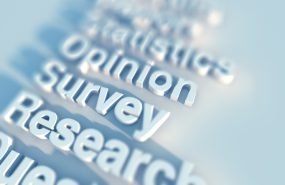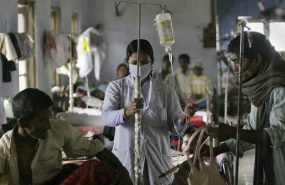The Developed Country NGO delegation is seeking new members. Deadline extended
- 09.10.2018 12:25
- Post Views: 1,215
Delegation Members
Delegation members work closely with the delegation’s Board Member, Alternate Board Members, Communications Focal Point, and other members to represent and advance the interest and priorities of the delegation, as well as the broader constituency of NGOs based in “developed countries” (generally defined as countries not eligible to receive Global Fund support due to their income level).
Throughout the year, members support the work of the delegation by providing input, advice and expert analysis on issues facing the Board and its three committees.
Members collaboratively set delegation priorities, identify key advocacy moments, and develop strategies for advancing the interests of civil society within the Global Fund.
Members regularly attend Board Meetings to jointly develop delegation positions on decisions facing the Board and lobby other delegations to build support for those positions to ultimately become Global Fund policy.
Members regularly provide insight and share intel on political developments in their home countries as they relate to The Global Fund and the global response to AIDS, TB and malaria.
Membership on the delegation is tied to individuals, not organizations. As such, members do not represent the view or positions of their home organization (and vice versa). Members are welcome and encouraged to drawn upon the expertise that exists within their respective organizations, but delegation positions and statements will not be presented as representing those of any specific organization.
Advisory Group Members
The Advisory Group (AG) is a loosely formed committee of 10 – 12 academics, researchers, implementers, consultants, NGO employees, civil society members, or any other individual with specialist knowledge of the global HIV, TB and malaria epidemics. These members voluntarily serve in their individual capacity to support the delegation with input and analysis on policy and programming issues facing The Global Fund.
Members offer independent advice in the lead-up to Global Fund board and committees meetings. The ultimate goal of the AG is to help deepen the delegation’s technical understanding of key areas in the global HIV, TB and malaria responses in order to foster more nuanced discussion and decision-making both within the delegation and the board more generally.
The views and opinions expressed by the AG are solely their own and do not reflect the policy or position of any specific organization, their employer, or The Global Fund.
The AG does not have decision-making authority, nor are members required to draft formal reports. Rather, members provide input and expert knowledge to the Developed Country NGO delegation, as well act as a sounding board for the delegation and its leadership.
AG members serve for a term of 2-years. Meetings are conducted via online platforms. Minimal to no travel will be required.
How to Apply
Details on qualifications, role and responsibilities, time commitment and application requirements are outlined in the two documents (please see below).
Please Note: Application requirements for delegation members and AG members are different. Please review the application instructions carefully.
The closing date for nominations is 17 October 2018. All applications must be received by this date.
All applications should be submitted to Jack MacAllister (jack.macallister@jwmconsulting.org).
Developed Country NGO Advisory Group 2018 extended (TOR)
Developed Country NGO New Member Call for Nominations 2018 extended (TOR)
Related News
Global Fund Strategy Development – Open Consultation Questions
COVID-19 is radically altering global health, politics and economics, and the impact upon programs fighting HIV, TB and malaria will likely be tremendous. The new pandemic could completely derail our vast efforts of the past 20 years. At the same time, it has galvanized public awareness on global health security in a way that builds […] Read moreGlobal Fund Technical Brief Tuberculosis, Gender and Human Rights
The purpose of this technical brief is: to assist Global Fund applicants to consider how to include programs to remove human rights and gender-related barriers to tuberculosis prevention, diagnosis and treatment services within funding requests, and to help all stakeholders ensure that TB programs promote and protect human rights and gender equality. Post Views: 936 Read moreGlobal Fund Technical brief on HIV and key populations Programming at scale with sex workers, men who have sex with men, transgender people, people who inject drugs, and people in prison and other closed settings
The purpose of this technical brief is to provide information for countries preparing funding requests for comprehensive programs that address the cascade of HIV prevention, diagnosis, treatment, and care for the following key populations: male, female, and transgender sex workers, gay men and other men who have sex with men, transgender people (especially transgender women), […] Read moreServices for migrants and refugees from Ukraine – HIV/TB care with a focus on key populations
Due to the increasing flows of refugees from Ukraine because of Russia’s invasion of Ukraine, the EECA Regional Platform created a spreadsheet to fill contacts details of face-to-face and online services for refugees and migrants (with a focus on HIV/TB care and key population groups).
Regional Platform – EECA
This web-resource is a part of new regional communication and coordination project “Regional Civil Society and Community Support, Coordination and Communication Platform - EECA”, implemented by Eurasian Harm Reduction Association (EHRA).
Tags
See also
-
EECA’s Regional Platform monthly Newsletter #20, January 2026 27.01.2026 12:58
-
Global Fund Eligibility List 2026 27.01.2026 11:19







